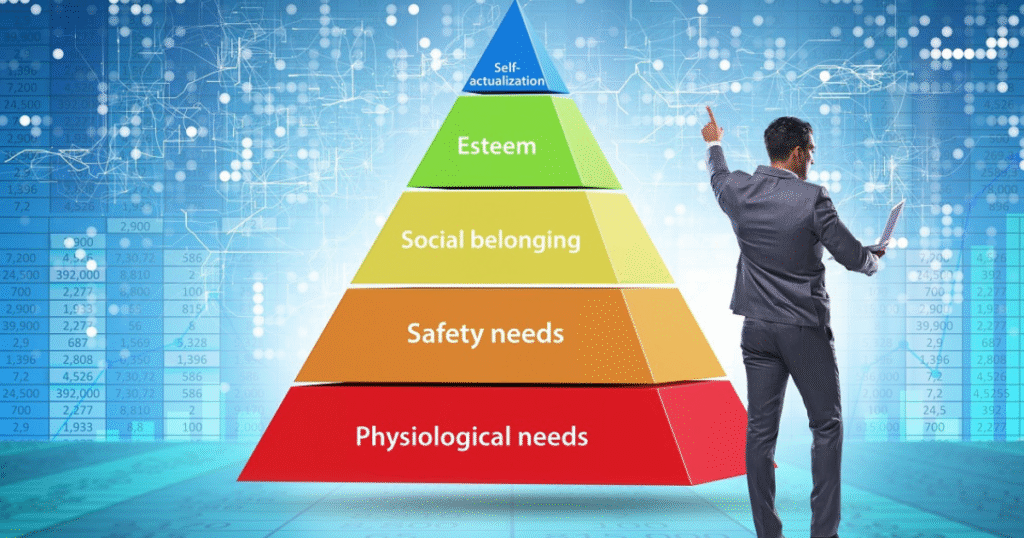Family is the cornerstone of human society, and it plays a fundamental role in shaping the lives of individuals. One of the critical elements that hold families together and foster strong, supportive relationships is family values. These values—principles, beliefs, and morals—serve as the guiding force that helps family members maintain healthy and meaningful connections. Understanding the importance of family values can strengthen relationships, promote unity, and provide a foundation of trust and respect.
In this article, we will explore the significance of family values in building stronger relationships, how they influence family dynamics, and practical steps to nurture these values.
The concept of family is deeply embedded in every culture and society, with families being a primary source of emotional, physical, and psychological support. As such, family values are critical to nurturing strong relationships. These values define how members interact with one another, deal with challenges, and grow together as a unit. By fostering respect, trust, and love, family values create a framework that guides family members in building harmonious, supportive, and enduring relationships.
This article aims to highlight the importance of family values in strengthening relationships, providing insight into how they influence behavior, communication, and overall family dynamics.
What Are Family Values?
Defining Family Values
Family values are the shared beliefs, principles, and ethical standards that guide behavior within a family. These values are often passed down from generation to generation and can vary widely depending on cultural, religious, and social backgrounds. Family values encompass a range of qualities, including respect, honesty, loyalty, compassion, responsibility, and empathy.
These values provide a moral foundation that helps family members navigate life’s challenges, understand their roles within the family, and prioritize each other’s well-being. Family values are crucial in shaping the emotional environment of the home and determining how individuals relate to each other.
How Family Values Are Formed
Family values are typically formed over time through the influence of parents, caregivers, and significant family members. They are shaped by shared experiences, traditions, customs, and expectations. These values can also evolve as families adapt to new circumstances, such as changes in societal norms, cultural shifts, or generational differences.
The Role of Family Values in Building Strong Relationships
Fostering Trust and Respect

Trust and respect are foundational elements in any relationship, and they are built through the consistent practice of family values. When family members honor each other’s opinions, are transparent in their communications, and demonstrate respect for one another’s boundaries, a deep sense of trust is cultivated. This trust allows family members to express themselves freely, knowing that they will be heard and valued.
Family values such as honesty, integrity, and fairness help create a safe environment where each member feels respected. In turn, this respect reinforces positive interactions and promotes stronger, more meaningful relationships.
Promoting Unity and Cohesion
Family values help bind the family unit together, promoting unity and cohesion. When everyone in the family shares common values and beliefs, it creates a sense of belonging and togetherness. Family members are more likely to cooperate, work toward common goals, and support each other in times of need.
Values such as commitment, love, and loyalty serve to strengthen family bonds, especially during difficult times. In a family where values are consistently upheld, members are more likely to rally around each other, providing emotional support and encouragement through life’s challenges.
Encouraging Positive Communication
Open, honest, and empathetic communication is essential for building strong family relationships. Family values encourage effective communication by promoting active listening, respect, and understanding. When family members communicate based on shared values, misunderstandings and conflicts can be resolved in a healthy, constructive manner.
Family values such as patience, kindness, and empathy help family members approach conversations with a mindset of understanding, which fosters better communication and conflict resolution.
Core Family Values That Foster Strong Relationships
Love and Affection
Unconditional love and affection are among the most important values in any family. When love is expressed freely, it creates an environment of warmth and security, allowing family members to thrive. Love is a powerful force that encourages empathy, care, and mutual support, which are essential for strong relationships.
Honesty and Integrity
Honesty and integrity are key to establishing trust within the family. When family members are truthful with one another, they build a solid foundation of trust and mutual respect. Upholding integrity ensures that actions align with words, and promises are kept. This fosters a sense of reliability and dependability within the family.
Respect and Consideration
Respect for one another’s individuality, opinions, and feelings is essential in maintaining strong family bonds. Family values that promote respect help to prevent conflicts, encourage healthy boundaries, and foster a climate of appreciation and understanding. Mutual respect allows family members to value each other’s unique perspectives, even when disagreements arise.
Responsibility and Accountability
Responsibility and accountability are vital family values that promote a sense of duty and reliability. Family members who take responsibility for their actions contribute to the overall well-being of the family. Holding each other accountable fosters a sense of discipline and helps ensure that everyone contributes to the family’s success and happiness.
Compassion and Empathy
Compassion and empathy are values that encourage family members to be understanding and supportive of one another. These values are particularly important during challenging times, as they enable individuals to offer comfort, encouragement, and emotional support. When family members practice compassion, they are more likely to put themselves in each other’s shoes and offer assistance without judgment.
How Family Values Shape Individual Behaviors
Developing Emotional Intelligence
Family values play a significant role in developing emotional intelligence, which is essential for forming healthy relationships. Values such as empathy, kindness, and respect help individuals become more aware of their own emotions and the feelings of others. This awareness enables family members to navigate emotional challenges and develop healthier interpersonal skills.
Impacting Decision-Making
The values instilled within a family influence how individuals make decisions. Family members who prioritize honesty, integrity, and responsibility are more likely to make choices that align with their moral beliefs. These values provide a framework for ethical decision-making and encourage individuals to consider the consequences of their actions on others.
Shaping Conflict Resolution Styles
Family values also influence how individuals approach conflict. Families that prioritize communication, respect, and problem-solving will likely teach members to handle disagreements calmly and constructively. When family members uphold values such as patience and understanding, they are more likely to resolve conflicts in a way that strengthens, rather than weakens, their relationships.
The Role of Communication in Upholding Family Values
Open and Honest Conversations
Open communication is the cornerstone of any strong family relationship. Families that value honest communication are more likely to share their thoughts, concerns, and feelings freely. Encouraging open dialogue helps prevent misunderstandings and fosters an environment of trust and respect.
Active Listening
Active listening is a key component of effective communication. When family members genuinely listen to one another, they demonstrate respect and validation. This practice not only helps avoid conflicts but also deepens emotional connections, allowing individuals to understand and support each other better.
The Impact of Family Values on Children
Teaching Positive Behavior
Children learn their behaviors, attitudes, and values from their family environment. When parents and caregivers model family values such as kindness, honesty, and responsibility, children are more likely to adopt these values themselves. Strong family values help shape children into empathetic, respectful, and morally responsible individuals.
Building Self-Esteem

A family that values love, encouragement, and support provides children with a strong foundation of self-esteem. When children grow up in an environment where their worth is affirmed, they develop confidence and a sense of security, which contributes to stronger relationships with others.
Challenges in Maintaining Family Values
Changing Social Norms
As society evolves, so do the values and beliefs that shape it. Families may face challenges in maintaining traditional values while adapting to modern social norms. Balancing change with continuity can be difficult, but it is essential to preserve the core principles that bind the family unit together.
Generational Differences
Family values may differ across generations, with younger family members adopting different perspectives or priorities than older generations. These differences can sometimes lead to misunderstandings and conflicts. However, through open communication and mutual respect, families can bridge generational gaps and uphold shared values.
Practical Tips for Strengthening Family Values
- Create Family Traditions: Establishing regular traditions, such as family dinners, vacations, or weekly activities, helps reinforce shared values and strengthens bonds.
- Encourage Open Communication: Foster an environment where all family members feel comfortable expressing their thoughts and feelings.
- Model Positive Behaviors: Parents and caregivers should model the values they wish to see in their children, leading by example.
- Promote Respect and Understanding: Teach family members to listen actively and respect differing opinions, fostering an environment of empathy and understanding.
- Celebrate Achievements Together: Recognizing individual and collective achievements reinforces the value of hard work and cooperation.
Also Read: The Importance Of Family Bonding In A Busy World
Conclusion
Family values are the foundation of strong, healthy relationships. They guide family members in their interactions, help resolve conflicts, and create a supportive environment where each person can thrive. By prioritizing values such as love, respect, and responsibility, families can build deeper connections, promote unity, and navigate life’s challenges with resilience.
Maintaining these values requires effort, but the rewards are well worth it. When families uphold their values, they create a legacy of strong relationships that will endure for generations.
FAQs
1. How do family values affect relationships outside the family?
Family values shape how individuals interact with others outside the family. For example, individuals who learn the value of respect and honesty in their family are more likely to apply these values in friendships, work relationships, and romantic partnerships.
2. Can family values change over time?
Yes, family values can evolve as society changes, and as family members grow and adapt to new circumstances. However, core values like respect, love, and trust often remain constant.
3. How can I teach my children important family values?
You can teach children important values by modeling positive behavior, having open discussions about the significance of these values, and providing consistent reinforcement through actions and words.
4. What should I do if family members do not share the same values?
If family members do not share the same values, it is important to maintain open, non-judgmental communication. Seek to understand their perspective and find common ground, while respecting differences.
5. How can family values improve family cohesion?
Family values promote understanding, mutual respect, and empathy, which help family members support one another through challenges and build a unified, harmonious family dynamic.

